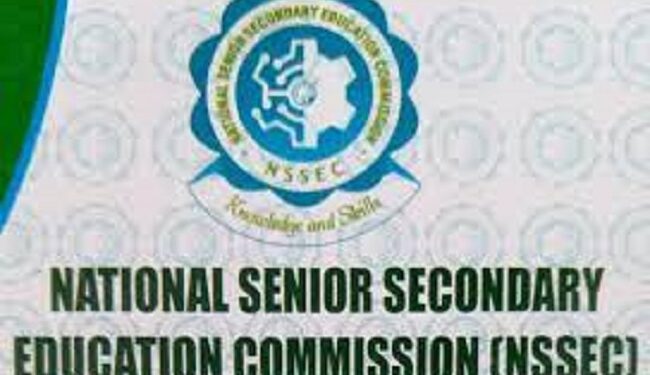A move by the recently re-established National Senior Secondary Education Commission to entrench the tendencies of over-bureaucratisation, centralising everything in a natural federation, and the continuous ceding of state functions to an over-sized central government, is dismaying, Iyela Ajayi, executive secretary of the commission, urged state governments to establish counterpart agencies in their respective domains to enable them access funding support from NSSEC.
“Education is very important for the development of any society. However, primary and secondary education should be primarily the responsibility of states and local governments in a federation. Typically, central governments in federal countries provide support, including funding through grants.
“Nigeria’s central government has also over the years been supportive of primary and secondary education. However, the reestablishment of NSSEC is wasteful, especially as the country is broke. Government should be radically downsizing, not creating new cost centres.
“Already, the Federal Government has the Universal Basic Education Commission, and the Tertiary Education Trust Fund. The first provides funding and other support to primary education nationwide and in support of the Universal Basic Education Programme up to junior secondary school. TETFUND supports tertiary education institutions nationwide.
“The initial National Secondary Education Commission Act 2004 was to support the secondary school system nationwide. But junior secondary school was later assigned to basic education. NSSEC became operational only in April 2021.
“Undoubtedly, the promoters of the amended NSSSEC Act 2023 seek to further strengthen secondary education. Their zeal is however misplaced; they should channel their energy into upgrading UBEC and avoid unnecessary costs and bureaucracy.
“Like any other government agency, it will have HQs, regional/area offices, principal officers, and other staff, and incur personnel and running costs. Contracts will be awarded, and procurement a permanent endeavour. Like others, NSSEC has already been involved in scandal, just two years in operation, including the suspension of its pioneer head over allegations of administrative ineptitude and financial misappropriation.
“Nigerian leaders are addicted to waste, duplication, and costly bureaucracies. To support secondary education, all the government and the National Assembly should do is amend the UBEC Act and other relevant laws, expanding their scope to accommodate senior secondary education.
“But the law not only sets up another cost centre in Abuja, but also demands similar cost centres being established at the state level to qualify for its funds.
“UBEC already supports basic education, from primary to the junior secondary school level. Instead of a new bureaucracy, the UBEC Act should simply be reworked to include senior secondary education”, Ajayi posited.
The Director-General of the Budget Office of the Federation, Ben Akabueze, in August, said there were about 1.5 million workers on the federal payroll. The government has been borrowing since 2014 to meet payroll obligations.
An NGO, BudgIT, reported that federal personnel costs leaped from N1.8 trillion in 2017 to N2.1 trillion in 2018. Public servants make up just about one per cent of Nigeria’s population, but consume a quarter of the national budget.
The President Bola Tinubu administration is reportedly seeking a fresh loan of $400 million for ‘cash transfer’ to poor households to cushion the effect of prevailing adversity. Money is scarce and should be conserved for critical infrastructure and poverty alleviation.
Moreover, the states should have control over primary and secondary education; an overbearing central government dictating standards to them is inappropriate. Standards should be mutually negotiated and agreed to by the states, and common grounds adopted.
“Tinubu should boldly scrap or merge irrelevant, duplicated and overlapping agencies to cut the cost of governance. NSSEC is one; he should take that pragmatic option”, Ajayi advised.
